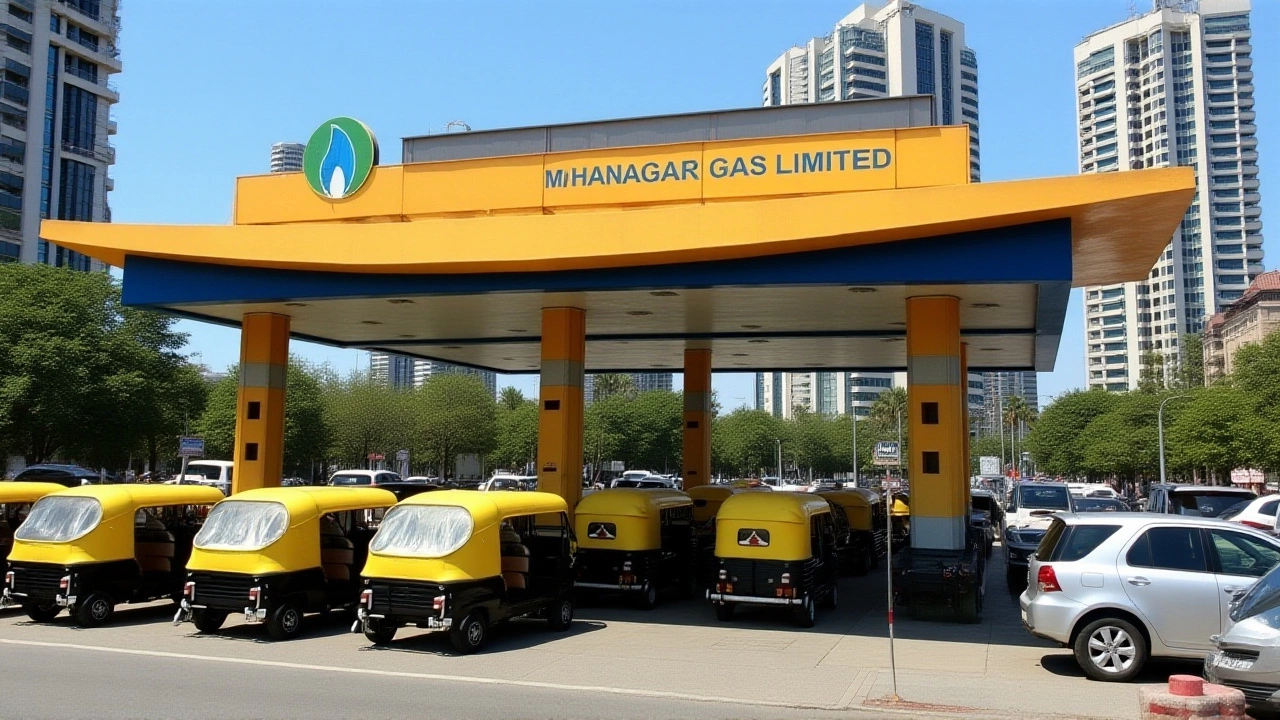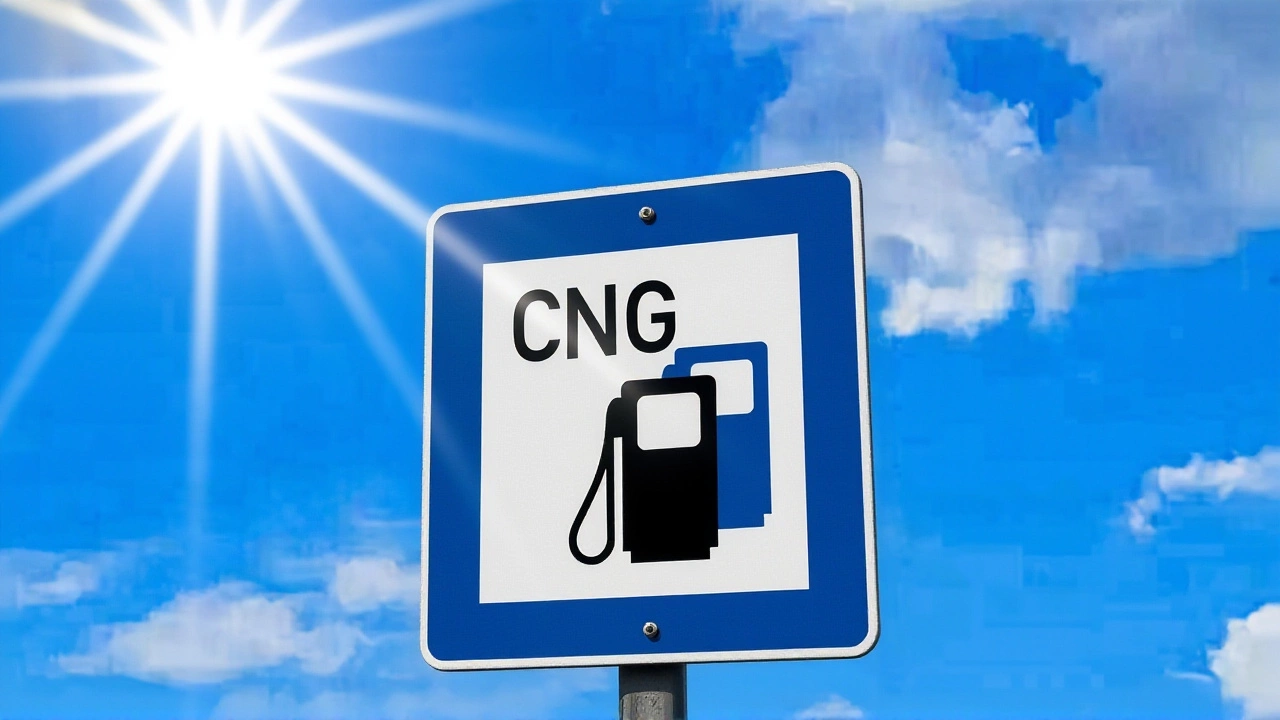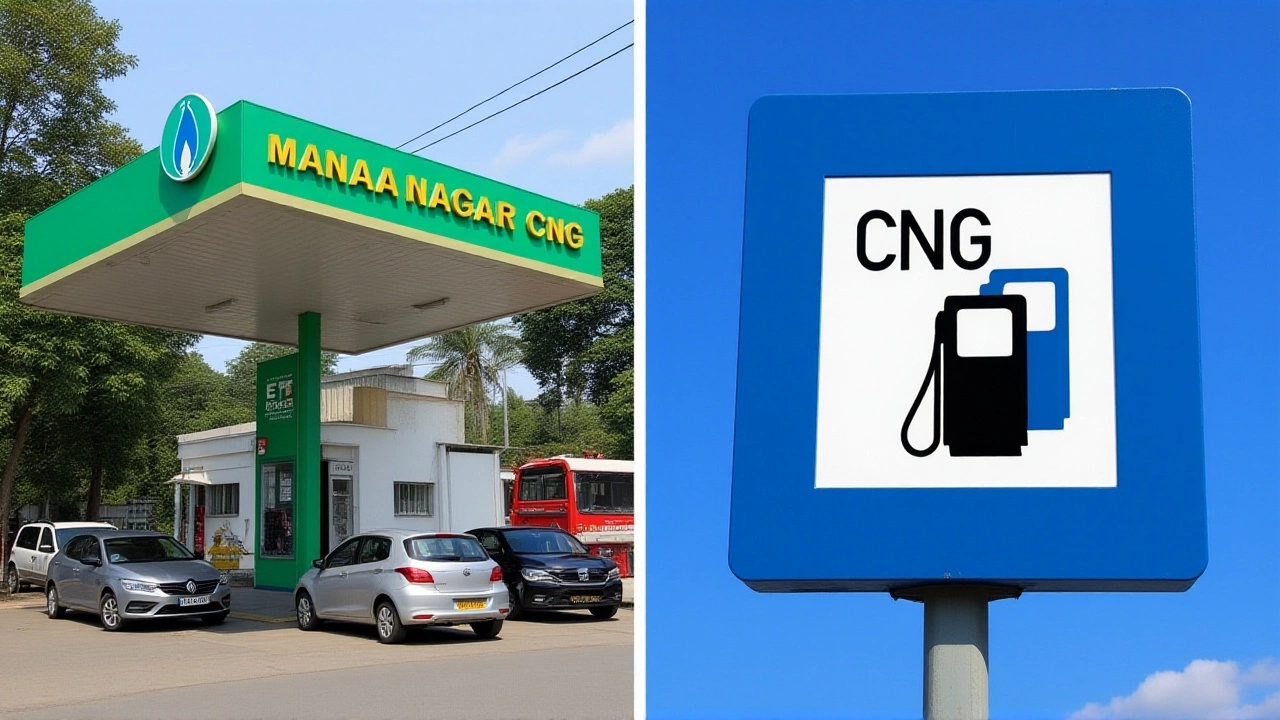Mumbai CNG Supply Restored After 48-Hour Crisis Triggered by RCF Pipeline Damage
 Nov, 18 2025
Nov, 18 2025
At 15:45 IST on Tuesday, November 18, 2025, the sputtering engines of Mumbai’s autorickshaws finally roared back to life. After 48 hours without compressed natural gas, Mahanagar Gas Limited confirmed full restoration of CNG supply across Mumbai, Thane, and Navi Mumbai—ending a crisis that paralyzed over 300,000 vehicles and turned fuel stations into traffic-choked queues. The cause? A ruptured main gas pipeline inside the Rashtriya Chemicals and Fertilisers (RCF) Trombay complex, damaged during unauthorized construction work. The disruption, which began at 8:00 AM on Sunday, November 16, cut off the primary gas feed to MGL’s critical Wadala City Gate Station, the nerve center for distributing natural gas to nearly 500 CNG stations in the Mumbai Metropolitan Region.
How a Construction Mistake Grounded a City
It wasn’t a natural disaster. Not a cyberattack. Not even a worker strike. Just a backhoe operator, working without permits, digging near a buried pipeline owned by Gas Authority of India Limited (GAIL). The pipeline, part of GAIL’s 14,831-kilometer national network, was carrying 1.8 million standard cubic meters of gas per day (MMSCMD) to MGL’s distribution hub. When it punctured, pressure dropped instantly. No gas meant no CNG. And no CNG meant no fuel for taxis, buses, or delivery vans that rely on it to cut costs and emissions.
By Monday, November 17, the city was in gridlock. Drivers waited up to six hours at stations still operating. MMRDA buses sat idle. Ride-hailing apps showed "No Vehicles Available" across Andheri and Thane. "It felt like the city had forgotten how to move," said Rajesh Patel, a taxi driver who spent 14 hours in line at a station in Kandivali. "I lost two days’ earnings. My kids’ school fees are due next week."
The Race Against Time: Repair Timeline
The fix followed a tightly choreographed emergency protocol. Within hours of the shutdown, GAIL engineers on-site confirmed the breach. But getting permission to dig inside RCF’s heavily guarded industrial compound took time. RCF, a government-owned chemical plant established in 1978, had to approve repairs—delaying the process until 10:00 AM on November 17.
By noon on the 18th, welding teams were on the line. Pressure tests began at 2:00 PM. At 3:45 PM, MGL’s control room in Navi Mumbai received the green signal: pressure was stable. Within 15 minutes, gas began flowing again to Wadala. By 4:00 PM, station operators across the region reported restored supply. "The pressure normalized faster than we expected," said an MGL operations manager, speaking off-record. "It’s like flipping a switch after a blackout."

Who Was Affected—and Who Wasn’t
While 486 CNG stations went dark, one critical network stayed lit: domestic Piped Natural Gas (PNG). Over 1.5 million households across Mumbai and Navi Mumbai never lost cooking gas. "That was a relief," said Priya Deshmukh, a mother of three in Borivali. "We were already worried about rising LPG prices. Losing our stove gas would’ve been unbearable."
Industrial users weren’t so lucky. Forty-two factories—including pharmaceutical units in Goregaon and food processors in Navi Mumbai—had to halt production. Two hundred eighty restaurants, many using CNG for tandoors and fryers, switched to diesel generators or closed entirely. "We lost ₹2.3 million in sales in two days," said Vikram Mehta, owner of "Tandoori Junction" in Andheri. "We’re still catching up."
Why This Isn’t Just a One-Off
This wasn’t the first time RCF’s grounds became a hazard zone. In 2022 and 2023, similar pipeline breaches occurred there—both linked to unauthorized construction. After those incidents, MGL mandated dual verification for any third-party work near critical infrastructure. But enforcement, it seems, was inconsistent.
Now, GAIL has launched a formal probe. Findings are due within 14 business days. Meanwhile, MGL has imposed new rules: any construction near its supply lines must now be approved by both RCF and MGL’s engineering team—with real-time GPS monitoring of excavation equipment. "We can’t afford another 48-hour blackout," said an internal MGL memo leaked to reporters.
The 2021 pipeline maintenance crisis, which lasted 36 hours, was the last major disruption. This one was worse—not because of technical failure, but because of human error. And that’s harder to fix than a broken pipe.

What Comes Next
By Wednesday morning, most queues had vanished. CNG prices remained unchanged. But trust? That’s harder to restore. Commuters are now asking: "How many more pipelines are buried under this city without proper maps?" Local officials admit that underground infrastructure records are outdated, especially in industrial zones like Trombay.
For now, the lights are back on. The engines are running. But the question lingers: who’s really watching the wires?
Frequently Asked Questions
How many vehicles were affected by the CNG shutdown?
Approximately 300,000 vehicles relying on CNG across Mumbai, Thane, and Navi Mumbai were impacted, including autorickshaws, taxis, app-based cabs, and MMRDA buses. With 486 CNG stations offline, daily fueling capacity dropped by nearly 90%, stranding commuters during peak hours and disrupting last-mile logistics.
Why didn’t domestic PNG supply get cut off?
Domestic Piped Natural Gas (PNG) operates on a separate, parallel distribution network from CNG stations. While both use the same gas source, PNG flows through dedicated low-pressure lines directly to homes, bypassing the high-pressure transmission line damaged at RCF. This design ensures households aren’t affected by transportation fuel disruptions.
What role did GAIL play in the crisis and repair?
GAIL owns and maintains the main pipeline that was punctured inside RCF’s Trombay complex. While MGL distributes the gas, GAIL controls the transmission infrastructure. GAIL led the technical assessment, coordinated repairs with RCF, and initiated the official investigation into the unauthorized construction that caused the breach. Their response time—under 48 hours—was considered swift for such a high-risk industrial site.
What’s being done to prevent future incidents at RCF?
MGL has mandated dual verification for all third-party construction near critical gas lines at RCF, requiring approvals from both RCF’s safety team and MGL’s engineering unit. Real-time GPS tracking of excavation equipment is now mandatory. Additionally, GAIL is updating its underground infrastructure maps for the entire Trombay zone, a project expected to be completed by March 2026.
How does this compare to previous CNG disruptions in Mumbai?
The 2021 disruption lasted 36 hours due to planned maintenance errors. This 48-hour crisis was longer and more disruptive because it resulted from avoidable third-party damage—not scheduled work. It’s the most severe unplanned outage since CNG became widespread in Mumbai, affecting more stations and vehicles than any prior incident.
Will CNG prices increase because of this crisis?
No immediate price hikes are planned. MGL confirmed that supply has returned to normal levels, and storage reserves were sufficient to prevent panic buying. The government’s regulated pricing mechanism for CNG remains unchanged. However, analysts warn that repeated disruptions could pressure future pricing if infrastructure upgrades aren’t accelerated.